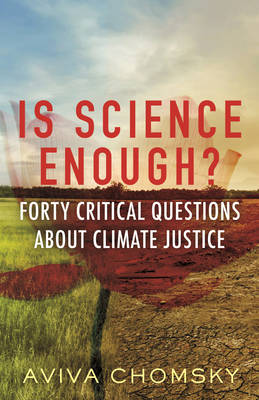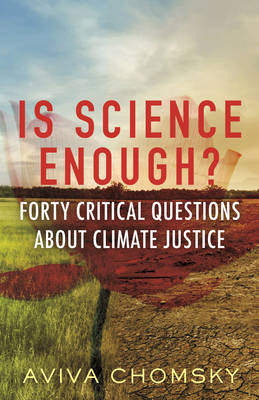
Je cadeautjes zeker op tijd in huis hebben voor de feestdagen? Kom langs in onze winkels en vind het perfecte geschenk!
- Afhalen na 1 uur in een winkel met voorraad
- Gratis thuislevering in België vanaf € 30
- Ruim aanbod met 7 miljoen producten
Je cadeautjes zeker op tijd in huis hebben voor de feestdagen? Kom langs in onze winkels en vind het perfecte geschenk!
- Afhalen na 1 uur in een winkel met voorraad
- Gratis thuislevering in België vanaf € 30
- Ruim aanbod met 7 miljoen producten
Zoeken
€ 20,95
+ 41 punten
Uitvoering
Omschrijving
Why social, racial, and economic justice are just as crucial as science in determining how humans can reverse climate catastrophe We are facing a climate catastrophe. A plethora of studies describe the damage we've already done, the droughts, the wildfires, the super-storms, the melting glaciers, the heat waves, and the displaced people fleeing lands that are becoming uninhabitable. Many people understand that we are facing a climate emergency, but may be fuzzy on technical, policy, and social justice aspects. In Is Science Enough?, Aviva Chomsky breaks down the concepts, terminology, and debates for activists, students, and anyone concerned about climate change. She argues that science is not enough to change course: we need put social, racial, and economic justice front and center and overhaul the global growth economy. Chomsky's accessible primer focuses on 5 key issues: 1.) Technical questions: What exactly are "clean," "renewable," and "zero-emission" energy sources? How much do different sectors (power generation, transportation, agriculture, industry, etc.) contribute to climate change? Can forests serve as a carbon sink? 2.) Policy questions: What is the Green New Deal? How does a cap-and-trade system work? How does the United States subsidize the fossil fuel industry? 3.) What can I do as an individual?: Do we need to consume less? What kinds of individual actions can make the most difference? Should we all be vegetarians? 4.) Social, racial, and economic justice: What's the relationship of inequality to climate change? What do race and racism have to do with climate change? How are pandemics related to climate change? 5.) Broadening the lens: What is economic growth? How important is it, and how does it affect the environment? What is degrowth?
Specificaties
Betrokkenen
- Auteur(s):
- Uitgeverij:
Inhoud
- Aantal bladzijden:
- 232
- Taal:
- Engels
- Reeks:
Eigenschappen
- Productcode (EAN):
- 9780807015766
- Verschijningsdatum:
- 5/04/2022
- Uitvoering:
- Paperback
- Formaat:
- Trade paperback (VS)
- Afmetingen:
- 137 mm x 218 mm
- Gewicht:
- 294 g

Alleen bij Standaard Boekhandel
+ 41 punten op je klantenkaart van Standaard Boekhandel
Beoordelingen
We publiceren alleen reviews die voldoen aan de voorwaarden voor reviews. Bekijk onze voorwaarden voor reviews.









